Editor's note: On September 30, Tianjin University held a seminar to celebrate both the National Day and the university’s 129th anniversary. Former leaders, university officials, alumni representatives, and faculty and student representatives gathered to share insights and suggestions for the development of the university.
We are pleased to share with our readers some excerpts from the speeches and discussions at the seminar.
Take the lead to build an education powerhouse
He Guomo (何国模), Class 1947, former Standing Committee member of Tianjin Municipal Committee and Vice Chairman of Tianjin Municipal Political Consultative Conference
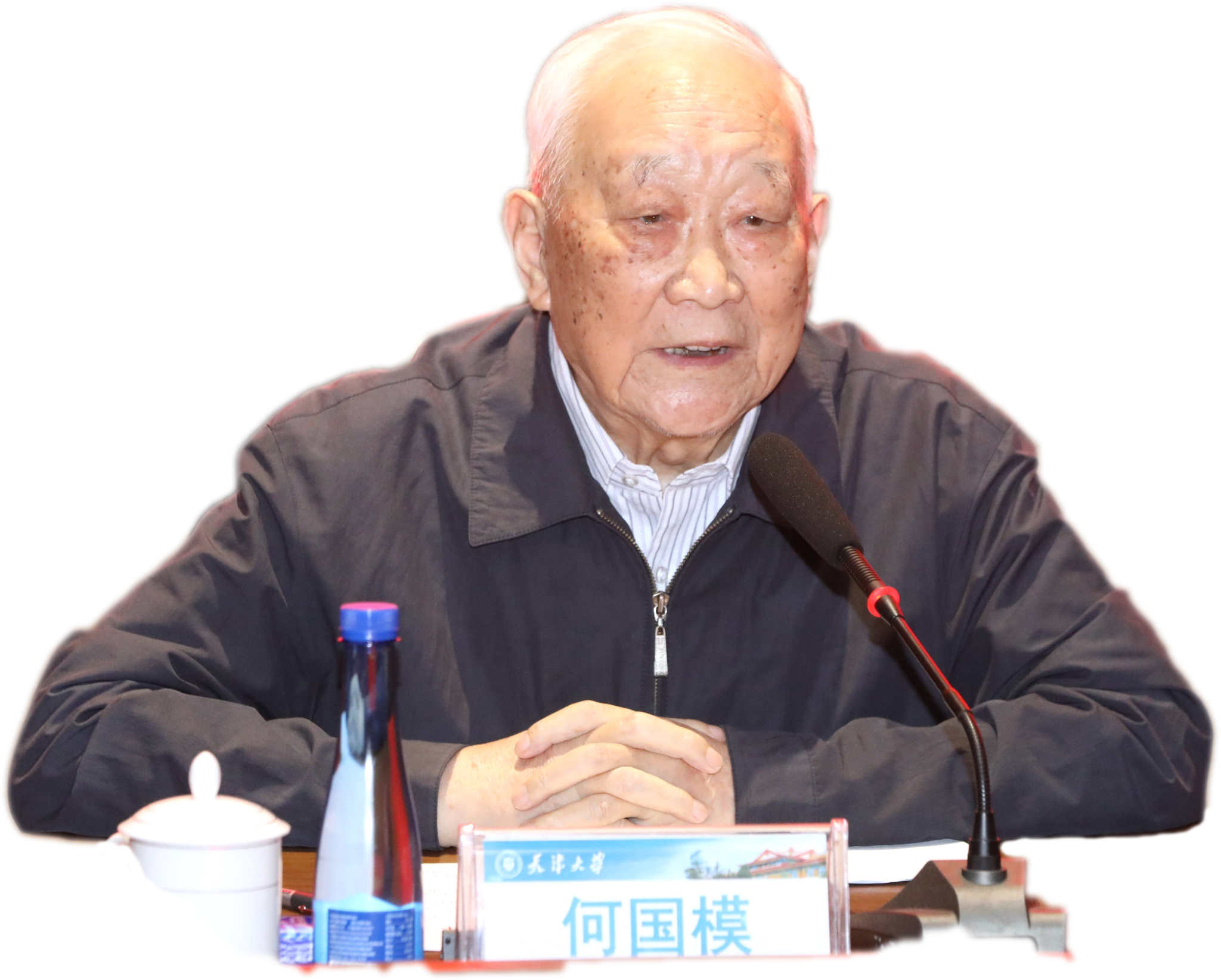
“In recent years, Tianjin University has done a great job in teaching and research. Building a technology-driven and education-focused nation is a pressing need of our times. It’s our expectation that TJU takes the lead in this great journey and plays a pioneering role in building an education powerhouse,” said the 96 year-old alumnus.
“In the Peking opera ‘Mu Guiying Takes Command,’ it is said, ‘Who will take the lead if not me?’ Our university should embody the same courage and continue to pursue excellence as we have always done.”
He Guomo also offered two suggestions for the university’s future work. First, he emphasized that people are the university’s most valuable resources for ensuing ongoing growth and dvelopment. He said that it is imperative for faculty and students to truly understand their historical missions and are motivated to pursue them, ensuring a continuous flow of educational and technological achievements. Second, he highlighted the need for the university to enhance its strategic planning in line with the national developing plan. By 2035, China aims to become an educational powerhouse, which is the paramount goal for current and future educational reforms. It’s better that TJU adjusts its long-term and short-term plans to align with this national vision. Each discipline and research unit should set both long-term and short-term objectives based on their specific contexts. Special attention should be given to key projects and those with development potential, offering tailored guidance and robust logistical support.
A promising future is awaiting us.
Shan Ping (单平), former president of Tianjin University
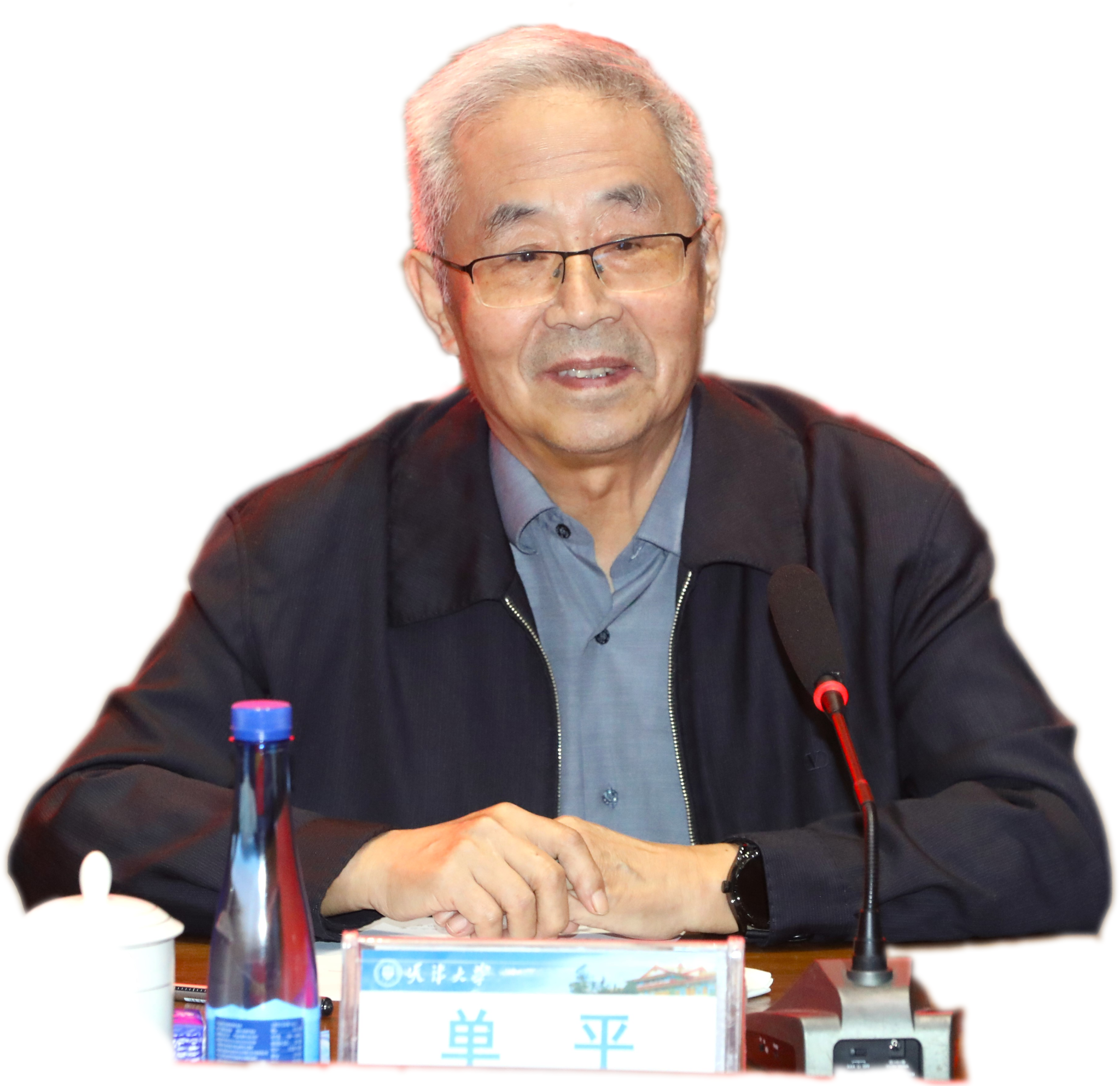
“It has been 18 years since I left my post, and I’m very happy to return and see these young faces at the university. As the first modern university in China, Tianjin University has a rich heritage.” Shan Ping said while reflecting on the development of the university over the past 30 years.
Shan mentioned that in recent years, TJU has actively supported the national strategy of invigorating China through science and education. The institution has established many emerging disciplines and interdisciplinary majors in fields like Earth Sciences, Oceanography, Life Sciences, and Medical Sciences. He approved the achievements TJU made in emerging engineering education and felt proud that the university has proactively served local economic development by continuous research development and technology transfer.
Shan Ping said, "Over the years, TJU has achieved nationally recognized accomplishments, and a promising future is awaiting us.” He encouraged everyone to continuously improve the university’s innovation system, and contribute more wisdom and strength to accelerate the construction of a strong education nation and realize the great rejuvenation of the Chinese nation.
Dare to be the first
Gong Ke (龚克), former president of Tianjin University

“As the first modern university in China, we pioneered the path for the nation’s higher education 129 years ago. Today, as we are marching toward 2035, the year by which the country vows to basically realize modernization, this pioneering spirit-- which we might as well call the spirit of daring to be the first-- will guide us forward, ” said Gong Ke, summarizing and proposing a new facet of the university’s ethos.
“This spirit is more about exploring the unknown than catching up or overtaking others in existing areas. It requires us to be bold in innovation.”
Gong Ke highlighted two areas of focus: “First is the emerging engineering education. Intelligence and digitization are unstoppable trends that have become new productive forces like electricity once did. Tianjin University must keep pace with this trend, or it will fall behind. I hope the university can further promote intelligent education, enabling our students and researchers to stand out in the era of intelligence. The second important direction is green and sustainable development. By the end of this century, the goal is to limit global temperature change to within 1.5 degrees Celsius, which demands profound changes in our production and lifestyle. The greening of materials throughout their life cycle is a daunting challenge but also a tremendous opportunity. If we can make breakthroughs in green engineering and sustainable practices at Tianjin University, we could potentially take the lead as the global landscape reshuffles.”
Gong Ke also emphasized the educational goal of fostering virtue. “We need to cultivate students who are truly moral, possess correct values, have a strong sense of social responsibility, and can think independently.”
Sprint towards building a world-class university in the next decade
Li Jiajun(李家俊), former Party Secretary and President of Tianjin University
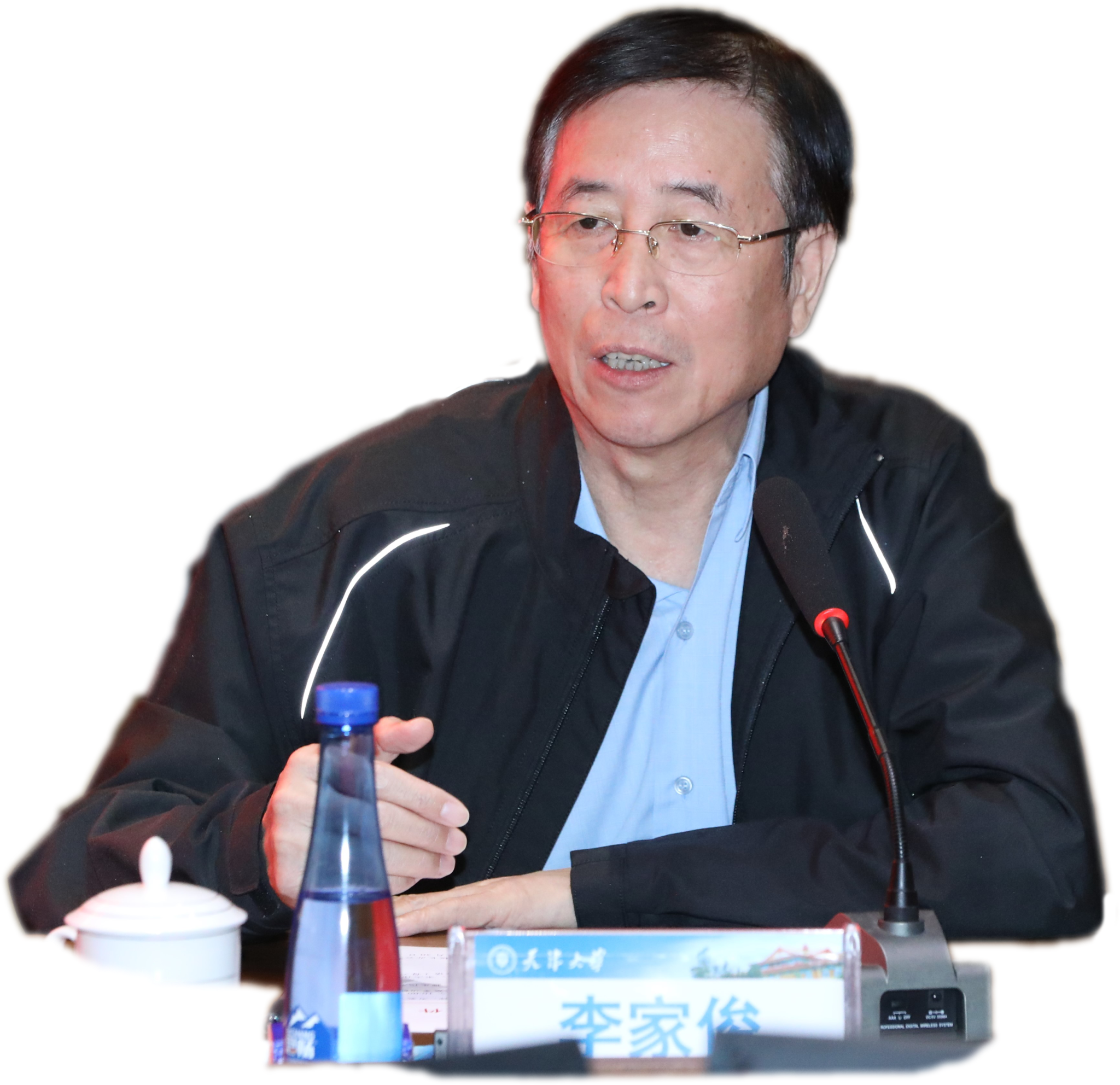
"As we look toward 2035—our university's 140th anniversary and the year China aspires to emerge as a global education powerhouse—Tianjin University faces a pivotal decade," Li Jiajun declared with palpable urgency. "This crucial period will be our sprint towards world-class status. Our goal is not just to join the ranks of elite global institutions, but to pioneer a uniquely Chinese model of academic excellence. We aim to lead the charge in defining what it means to be a world-class university with distinctive Chinese characteristics."
"For the 130th anniversary celebration next year, I suggest to fix one of the celebrating themes about TJU Action to sprint towards world-class status."
Li Jiajun believes that building a world-class university is Tianjin University’s responsibility. He offered several suggestions for future development:
First, new engineering disciplines are our strengths and important leverage points in establishing a world-class university. He emphasized the need to further enhance the educational impact of new engineering programs. Additionally, Tianjin University’s new liberal arts and medical disciplines are also showing promising results. “These achievements should be thoroughly documented and actively promoted to maximize their impact.”
Second, Li stressed that research initiatives should be aligned with national strategic priorities. He underscored that high-level research is fundamental to developing top-tier disciplines and nurturing exceptional talent.
Third, Li advocates for a balance between organizational structure and the promotion of vitality. “We should deepen management system reforms to cultivate an environment that enables both students and faculty to fully demonstrate their talents and unleash their creativity.
Fourth, Li emphasized the importance of strengthening social service. He suggested that Tianjin University leverage its existing resources, such as various research institutes, to enhance its contributions to society. Additionally, Li underscores the necessity of bolstering international cooperation.
Maintain openness, build exchange platforms
Song Zhiwei (宋志伟), Class 1979, Overseas Special Advisor to the Tianjin University Alumni Association, IBM Business Partner
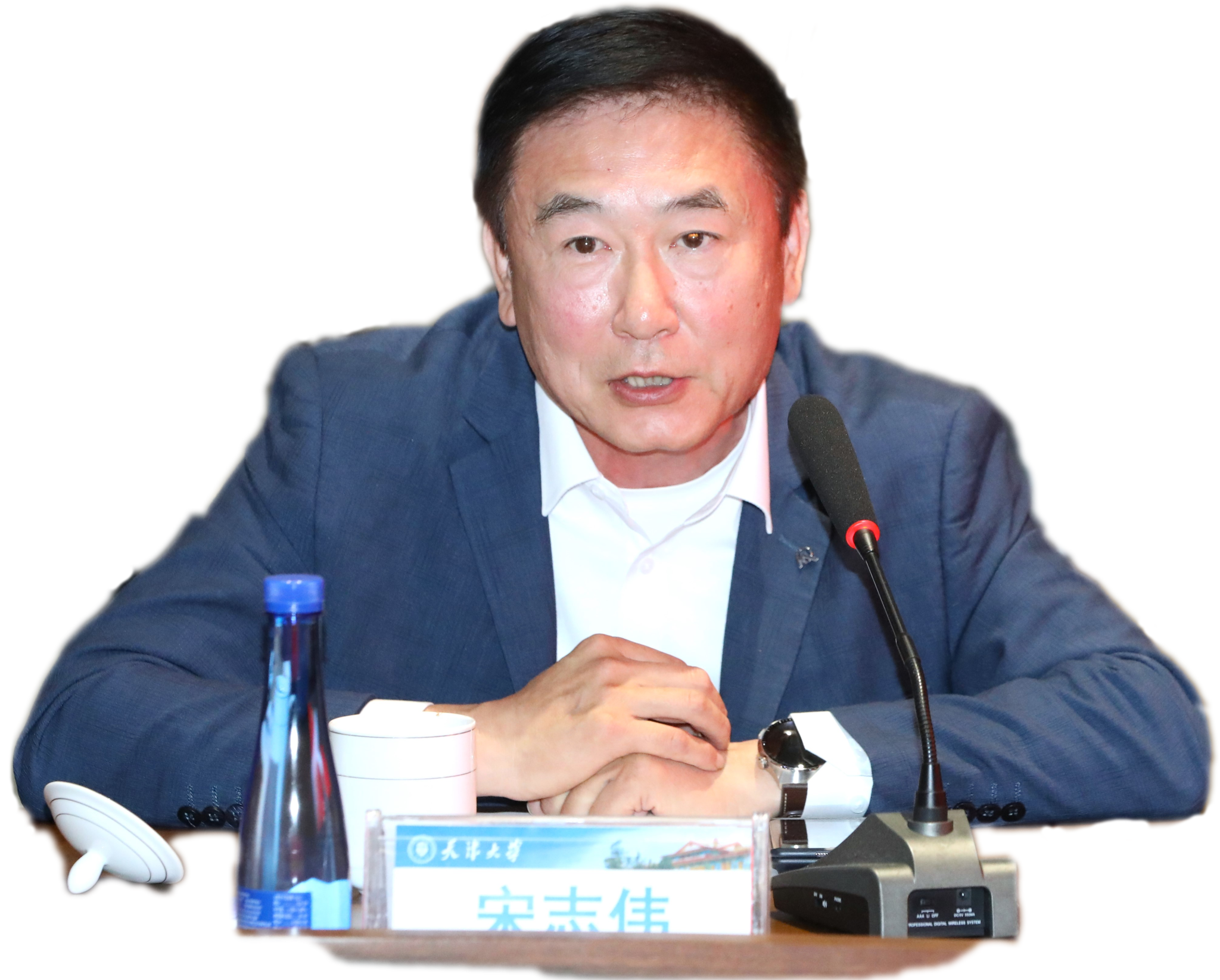
Song Zhiwei toured the campus before the symposium. He was very happy to see and learn about the university’s recent achievements. “During my years in Europe, whenever someone asked about my alma mater, I always proudly told them that I graduated from Tianjin University, the first modern university in China.The university motto of ‘seeking truth from facts’ is deeply imprinted in my heart. Actually, it is also the principle behind many important decisions in our country.” Song shared his observations and reflections from abroad, emphasizing innovation and openness as key themes.
“Innovation is the critical factor in determining whether a project can receive funding. Innovative projects are high-risk, but once successful, they bring about revolutionary changes. In scientific research and work, one must dare to break throguh traditional thinking and be courageous in trying new methods and approaches.” He believes that cultivating innovative thinking in students is extremely important and gave several suggestions.
“We should encourage students to innovate in various aspects like theory, product, service or management styles. They should be exposed to cutting-edge innovative thinking and practices in an environment highly tolerant of innovation failures.”
Secondly, Song encouraged students to embrace integrated thinking across various disciplines. He suggested forming “thought-sharing groups” that unite students from diverse fields, ages, countries, and perspectives, fostering the development of small innovation circles.
Last but not the least, Song thought it necessary to build career mentor networks for stduents. These networks should include mentors from various disciplines, schools, countries, and age groups.
Apart from fostering innovation spirit, Song Zhiwei also emphasized the importance to maintain openness and strengthen international exchange and cooperation. He offered a set of recommendations to enhance international engagement, including maintaining a two-way approach of 'going global and attracting talent,' urging the creation of more opportunities for school leaders, professors, researchers, and students to participate in international exchanges, and making use of existing international platforms and, where possible, the creation of new ones to showcase diverse talents and expertise.
Song Zhiwei ended his speech by calling on all TJU alumni to remember the university’s motto of “seeking truth from facts,” wherever they are and be courageous enough to face challenges and make innovations.
Establish TJU model for innovation and entrepreneurship ecosystem
Liu Yi (刘毅), Class 1985, President of the Tianjin Alumni Association of Tianjin University and Dean of Xuanhuai School
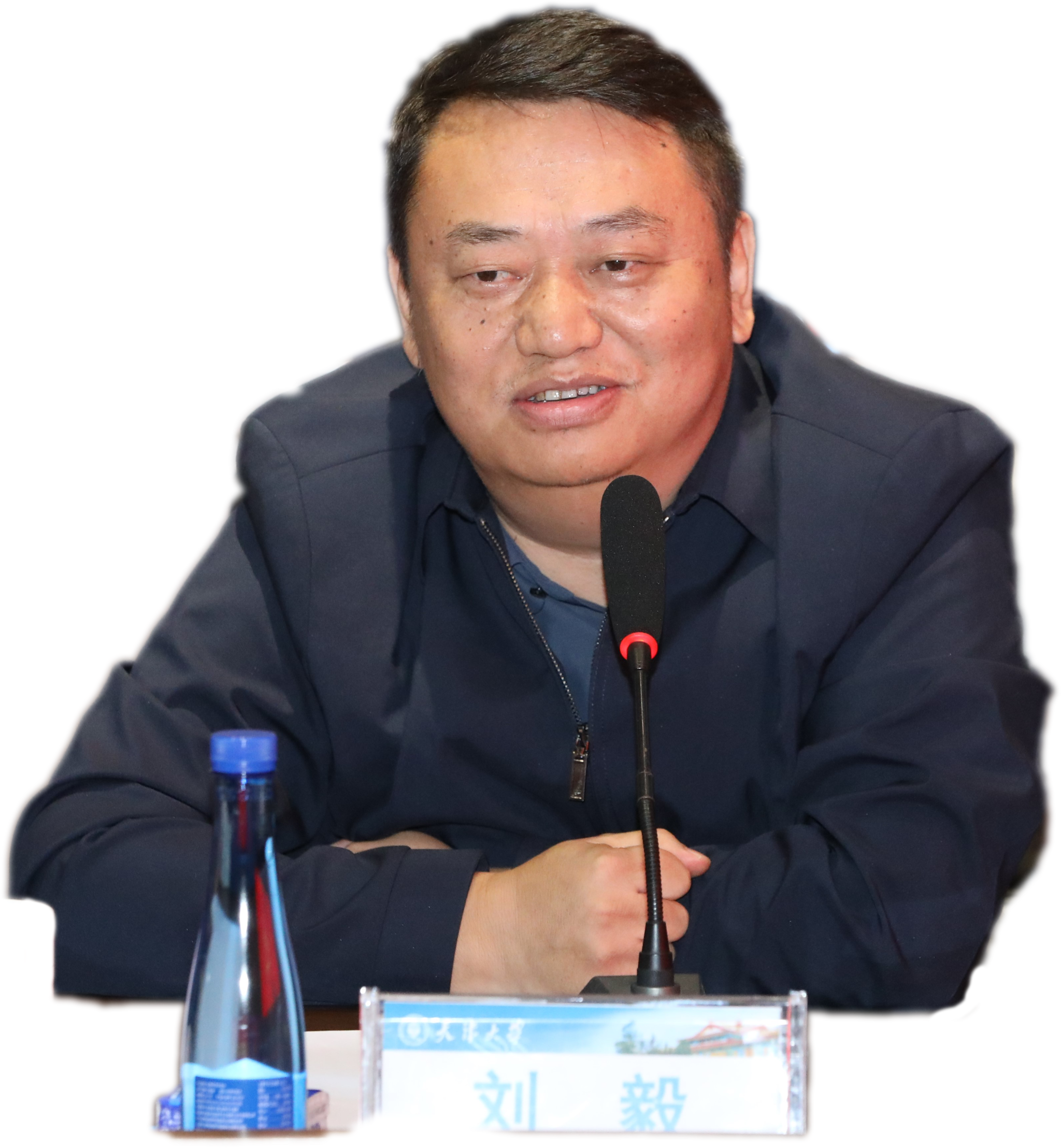
Liu Yi, who enrolled at Tianjin University (TJU) in 1985, holds dual bachelor's degrees in Analytical Instruments and Industrial Management. He currently serves in three key roles: Chief Executive Officer of Andon Health Co., Ltd., founding partner of Peiyang Begonia Fund, and Dean of the Xuanhuai School at Tianjin University.
Appointing an entrepreneur as the dean of an innovation and entrepreneurship school is a pioneering move by Tianjin University. Liu is dedicated to fostering an ecosystem for innovation and entrepreneurship.
In his speech, Liu said that Tianjin University’s innovation and entrepreneurship ecosystem was a collaborative effort among alumni entrepreneurs to accelerate the transformation of high-level technological achievements and to gather open entrepreneurial resources in the era of Innovation China, Internet of Everything (IoE), and AI. Drawing inspiration from the "Stanford + Silicon Valley" model, the goal is to develop a Tianjin-specific, globally oriented, and sustainable ecosystem. It consists of 9 parts, including venture capital funds, entrepreneurship lectures, forums, courses, competitions, acceleration programs, entrepreneur clubs, technology achievement transformation awards, and the Tianjin University Science and Technology Park.
Regarding technology transfer, Liu advocates for pairing scientists with investors to find entrepreneurs. He suggests seeking entrepreneurs among graduates to form specialized teams capable of transforming laboratory samples into commercial products. This approach establishes a "troika" model, intergrating scientists, investors, and entrepreneurs in the commercialization process.
In January, Andon Health, in collaboration with four other investment funds, established a 5 billion yuan fund of funds (FOF) for scientific innovation. They aim to select over 20 prominent venture capital institutions across various stages and fields to create a fund cluster of 10-15 billion yuan.
Looking ahead, Liu said, "In the next five years, we will strive to develop a Tianjin University Science and Technology Park of no less than 400,000 square meters, attracting 500 sci-tech startups to settle in the Park, incubating 30 growth-oriented companies, nurturing 10 unicorns, and drawing more than 10,000 outstanding graduates to start businesses in Tianjin, thus contributing to the city’s high-quality development."
Cultivate Interdisciplinary Talent
Zheng Dong (郑东), Class 1988, renowned venture capitalist
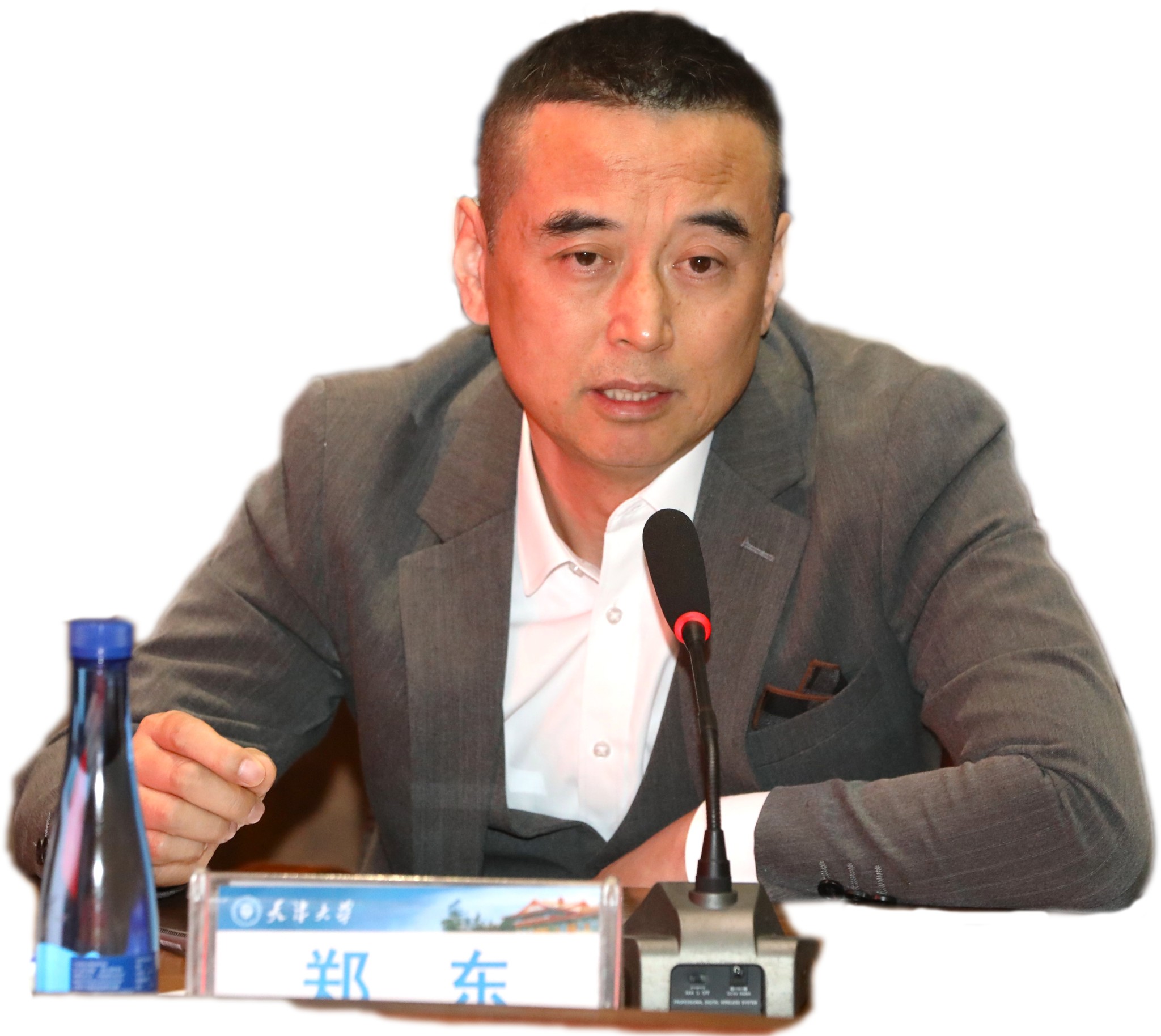
"I was most fortunate to enroll in the School of Chemical Engineering and Technology at Tianjin University (TJU) in 1988, and felt proud to be a member of this institution," said Zheng Dong, who donated 50 million dollars a decade ago to support the construction of the Zehgndong library on the new campus.
During his time at TJU, Zheng was a well-rounded student and among the first batch of his class to jointhe Communist Party of China (CPC). After graduation, he worked successively for large state-owned enterprises and major commercial companies. In 1994, he went into the field of venture capital and experienced ups and downs there for the past 30 years. He saw the disparity between domestic and international investments and had a keen recognition that China remains a developing country that has a long way to go to catch up with developed nations.
"These gaps are most obvious in fundamental sciences and revolutionary scientific advancements from zero to one. Universities are the main battlegrounds for scientific innovation. Tianjin University must take on significant responsibilities."
"Invigorating the nation through science and education is fundamental way for our country’s rejuvenation." On the occasion of the 129th anniversary of Tianjin University, Zheng donated another 50 million yuan to establish the "Zheng Dong Excellence/Chair/Talent Professor Fund," aimed at helping his alma mater strengthen its faculty and enhance its academic capabilities. He believed that teachers are the cornerstones of education and hoped this donation would support TJU in fostering more outstanding scholars, engineers, and scientists.
"Tianjin University is at the forefront of emerging engineering education in China and will play a crucial role in national talent development,” Zheng stated, “Five years ago, I consulted Professor Xu Tian, a former advisor to the president of Yale University, on the development trajectories of Eastern and Western education. Analyzing the background of Nobel Prize winners over the past decade, it’s clear that cultivating interdisciplinary talent and multidisciplinary talent is essential for effective talent development. I believe this trend will become increasingly prominent as the world evolves. I sincerely wish TJU further success in interdisciplinary program design and talent cultivation."
Translated by Zhao Qinghua & Hu Xin
Editor: Eva Yin






